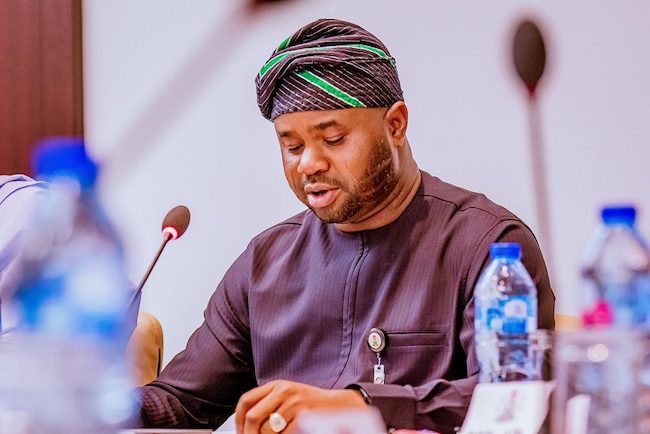The Federal Inland Revenue Service has stated that the Federal Government is aiming to collect N5 trillion from Value Added Tax in 2024 and is also working to close identified tax gaps.
It also mentioned that the FG is prepared to comply with the Economic Community of West Africa State’s directive on tax reform.
The Chairman of the FIRS, Zacch Adedeji, made this statement at a press conference organized by the Support Programme for Tax Transactions in West Africa, a program supported by the European Union and ECOWAS in Abuja on Thursday.
The chairman, represented by an official of the agency, Mr Matthew Osanekwe, stated that the VAT has been increasing since 2019, reaching N1.9 trillion, N1.5 trillion, N2.5 trillion, N2.3 trillion, and 3.6 trillion in 2019, 2020, 2021, 2022, and 2023 respectively.
He also noted that the government is aligning with Article 30 of the ECOWAS on tax reforms.
Article 30 of ECOWAS VAT reform specifies that, “Each member state shall have the freedom to set the VAT rate for taxable operations within a range of 5 to 20 percent. However, member states may establish a reduced rate, the details of which shall be determined by the Council of Ministers.”
Earlier, the FIRS mentioned that the government expects N19.41 trillion revenue from the FIRS in 2024.
This target represents a 56.91 percent increase from the previous year’s actual and a 67.91 percent increase from the previous year’s target.
“The VAT rate shall also apply to goods and services produced locally as well as taxable goods imported, excluding the export of goods or equivalent, which are operations subject to zero tax,” he said.
Osanekwe stated that there were discussions at the National Assembly to pass the VAT reform into law, after which, it is expected that the VAT would increase to about N5 trillion from the current N3.6 trillion.
“From 2019, VAT has significantly improved in the country. As you can see, there is a pattern of increase. What we are doing at the FIRS is examining policy issues. Nigeria VAT was initially at five percent and was later increased to seven percent following some policy recommendations.
“We are also aligning with the ECOWAS directive on Article 30. The work is ongoing, and soon, we will engage stakeholders when necessary. Another action we are taking is broadening the scope of VAT collection in the country. We now collect tax from non-resident resource suppliers such as Google, Amazon, etc. We also utilize collection agents like Deposit Money Banks and telecommunication companies.
“The report of the program we had with PATF was submitted to the FIRS management, and the recommendations have been adopted. For example, our move from the Net Profit method to the Full Consumption method of tax collection is underway in accordance with article 10. Since we are allowed to set our threshold, as per Article 30.
“We have identified some VAT gaps, and we are collaborating with the United Nations Development Programme to train our staff in VAT gap analysis. Once that is completed, we anticipate a VAT of about N5 trillion in 2024,” he added.
Also speaking at the conference, the Head of cooperation of the European Union Delegation to Nigeria, Mr. Massimo De Luca, reiterated the EU/ECOWAS stance on Nigeria VAT, stating that it remains low due to citizens' passive misuse of resources by the government.
He said he was pleased with the PATF and expressed optimism that VAT will be effective in Nigeria.
“Tax in Nigeria is still very low compared to other countries in the region. Citizens feel that the taxes they pay are not used properly, so they are hesitant to pay more money for VAT. We are satisfied with the project done by PATF, and we plan to continue our efforts in the future. There is a lot that needs to be done to improve VAT in Nigeria,” he said.
In addition, Mr. Andrew Onyeanakwe, the representative of PATF, mentioned at the conference that the main goal of PATF is to implement the Fiscal Transition Programme in West Africa, following the implementation of regional trade liberalization policies, and to enhance the domestic tax revenue mobilization capacities of ECOWAS member states and Mauritania.
Some of the accomplishments of the PATF highlighted by Onyenakwe, representative of PATF in Nigeria, include: Development of Regional Tax Management Tools; Directive C/DIR.4/07/23 on the harmonization of the methodology for evaluating tax expenditure in ECOWAS Member States; Directive C/DIR. 5/07/23 Establishing the institutional mechanism for monitoring and evaluating ECOWAS Fiscal Transition.



